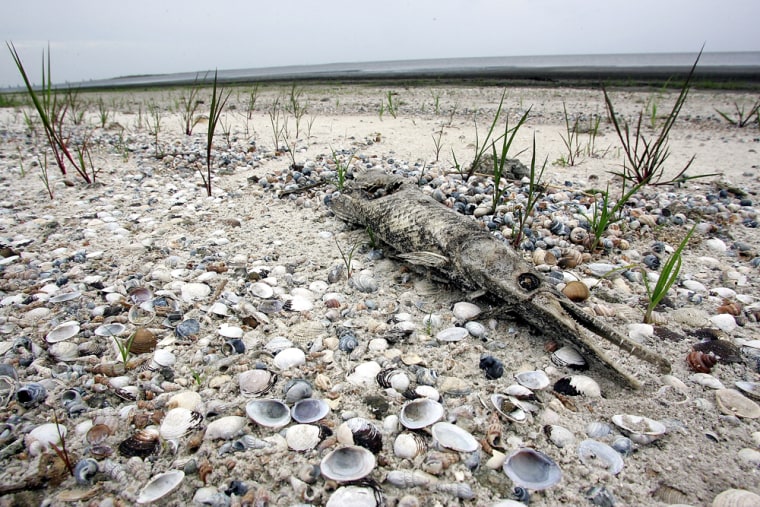Noticed fewer mosquitoes this spring? Enjoy it while it lasts.
The drought gripping parts of the South has left few places for the pesky bloodsuckers to hatch and grow, and scarcely a need for bug spray or zappers. But untold numbers are lying dormant in dry creek beds, stagnant storm drains and empty buckets, just waiting for the next downpour.
When that happens, the buzzing and biting will be back as the mosquito population explodes. If the sporadic rainfall trend continues, the insects could be on a boom-and-bust cycle all summer.
"When it's very dry like this, a lot of the eggs are just sitting out there," said University of Georgia entomologist Elmer Gray. "Those eggs are out there waiting for things to get wet again."
Georgia is home to 63 species of mosquitoes. The insects typically lay their eggs on water surfaces or in wet areas. The eggs hatch when the water level rises, like after a rainshower.
Larvae develop in the water. Under the best conditions — which are warm and wet — it takes about a week for mosquitoes to develop from egg to adult. A weather event like a hurricane or heavy rainfall is usually followed by a boom in the mosquito population.
Mosquito eggs can last through the winter and some as long as two or three years. Dry conditions don't leave many options for mosquitoes, since without water, the eggs won't hatch.
"There's just less stagnant water around because there's less water around," said Georgia state climatologist David Stooksbury.
With wet places being so scarce, mosquitoes may likely lay eggs near another major source of water: people. Experts stressed the need to stay vigilant about emptying standing water near their homes and in toys, tarps, buckets or gutters, since mosquitoes carry viruses like West Nile or equine encephalitis, which can be potentially deadly.
Drain danger
However, the drought may be helping one breed of mosquito, the southern house. The species likes to develop in storm drain systems in older cities like Atlanta. Without rain, the storm drains don't get flushed out, and the larvae are safer to go through their 10-to 14-day life cycle.
The species is the primary one that transmits West Nile in the region.
The peak season for the disease is between Aug. 15 and Sept. 15. Most cities treat their storm drains with mosquito larvicides.
With a better chance of rain coming next week, the number of mosquitoes could rise quickly, Gray said. And long periods without rain will produce more eggs with no place to hatch until the next storm.
"We're at a time of year that it's awful hard to pull out of a drought," Stooksbury said. "Assuming we don't have a tropical weather disturbance, it will be winter before we really have a good chance of pulling out. Right now, it's not looking all that promising."
Still, whatever rain does eventually fall could provide a nest for fast-growing mosquitoes.
"Their life cycle is very short, so even when the season begins late, they're able to catch up very quickly," Stooksbury said.
Justin Brown didn't notice fewer bugs this spring as a regular fisherman at Lake Sinclair. But the manager of Jernigan's Hardware in Fairburn did notice the bug spray, candles and other repellants on the shelves of the store weren't moving.
"Nothing's selling right now," he said.
He didn't bother to re-order the supplies when he noticed nobody was really buying. Now he's ready for rain.
"That's more money in the pocket," Brown said.
